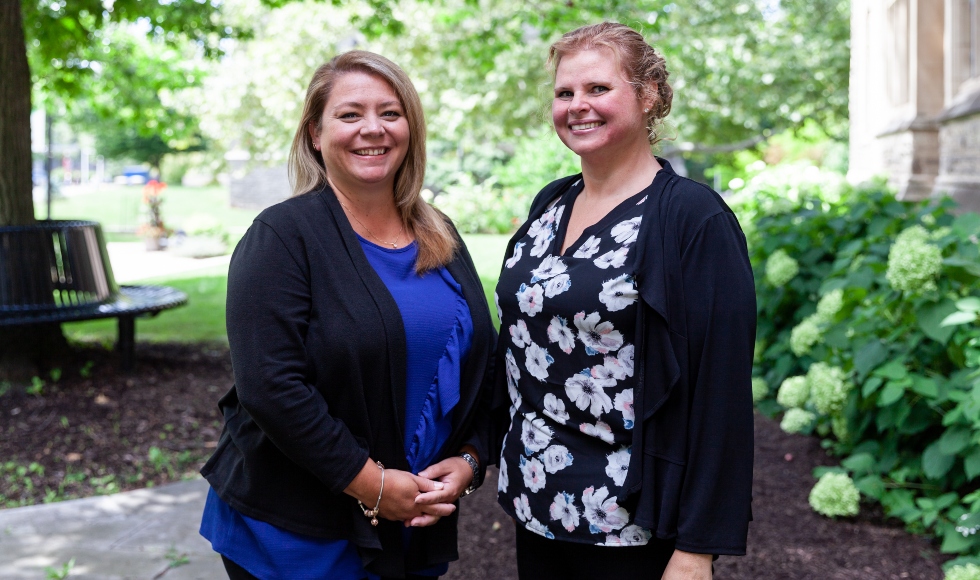McMaster expands mental health benefits for faculty and staff

McMaster’s occupational health nurses Gillian Gibbons and Rachael Byrne are working at breaking down the stigma associated with mental health supports. McMaster has increased benefits for services received by registered psychologists, social workers and psychotherapists to $3000. Photo by Sarah Janes.
There is no health without mental health.
That’s the key message from McMaster’s occupational health nurses Rachael Byrne and Gillian Gibbons. The two facilitate mental health first aid courses for university faculty and staff, present departmental mental health awareness training sessions and provide resources to employees to help in urgent situations, as well as assisting with workplace accommodations and return-to-work planning for employees on leave.
“Now we’re really looking at mental well-being in the same way that we’ve been looking at physical well-being,” says Byrne. “How can we prevent psychological injury? We don’t need to wait until someone is in crisis before we intervene.”
Byrne points to a new national standard for psychological health and safety in the workplace that outlines 13 factors to support a psychologically safe working environment including clear leadership and expectations, workload management, and engagement. Videos and handouts illustrate the concepts online. She and Gibbons also work with faculty and staff teams to present the information and talk about increasing resilience and preventing crisis situations.
Increase to benefits
Alongside work in building a culture of psychological safety, the university has responded to employee groups by increasing annual benefits coverage to $3000 for services from registered psychologists, social workers and psychotherapists. The increase applies to members of MUFA, TMG and Unifor unit 1 (effective November 1, 2019).
McMaster employees can also access confidential support through Homewood Health, the employee and family assistance program. Homewood provides counselling and life coaching services to aid with mental health, career, life balance, health management and overall personal well-being. Expert information and crisis support are available 24 hours a day, seven days per week, online and by telephone.
Everyone has a role
Byrne and Gibbons emphasize that everyone has a role to play in creating a psychologically safe workplace and that they look forward to a day when getting help for mental health is seen in the same light as getting help for physical health.
“We need to break down the stigma,” says Gibbons.
Byrne says more education is needed so that people think of mental health as more than crisis care.
“We have resources for someone in distress, but we also need to look at the bigger picture environment at the university and making it supportive as a whole to everyone in it,” she says.
World mental health day is October 10.
McMaster mental health resources:
- Crisis supports and resources
- McMaster workplace wellness
- Homewood Health EFAP
- Expanded Mental Health Benefits – Maximum coverage of $3,000 per person (including eligible dependents) per benefit year, in total for services received by registered psychologists, social workers and psychotherapists.
- Mental Health first aid training
- Psychologically healthy and safe workplace training
- Manager resources
- University-funded Continuing Education workshops: Communication Essentials
- Emotional intelligence at work
- Conflict resolution in the workplace
- Art of active listening
- Gender-inclusive communication and collaboration
- Unconscious bias: How we make decisions
- WSIB now recognizes chronic mental stress as a workplace injury
- Union H&S representatives


